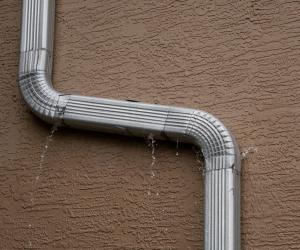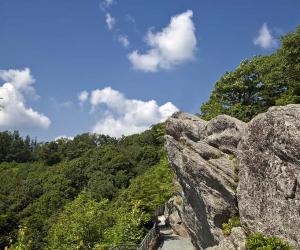9 Reasons to Think Twice Before Planting a Birch Tree
Birch trees are undeniably beautiful. Their silver bark and lovely leaves add a pop of contrast—especially during the fall. These trees have long symbolized rebirth and new beginnings, speaking to their historical and cultural significance.
However, these lovely trees can be problematic when used in landscaping.
In this article, we’ll discuss the disadvantages of birch trees and compelling reasons why you should think twice before planting them.
Let’s dig in!
1. Birch Trees Are Weak Growers
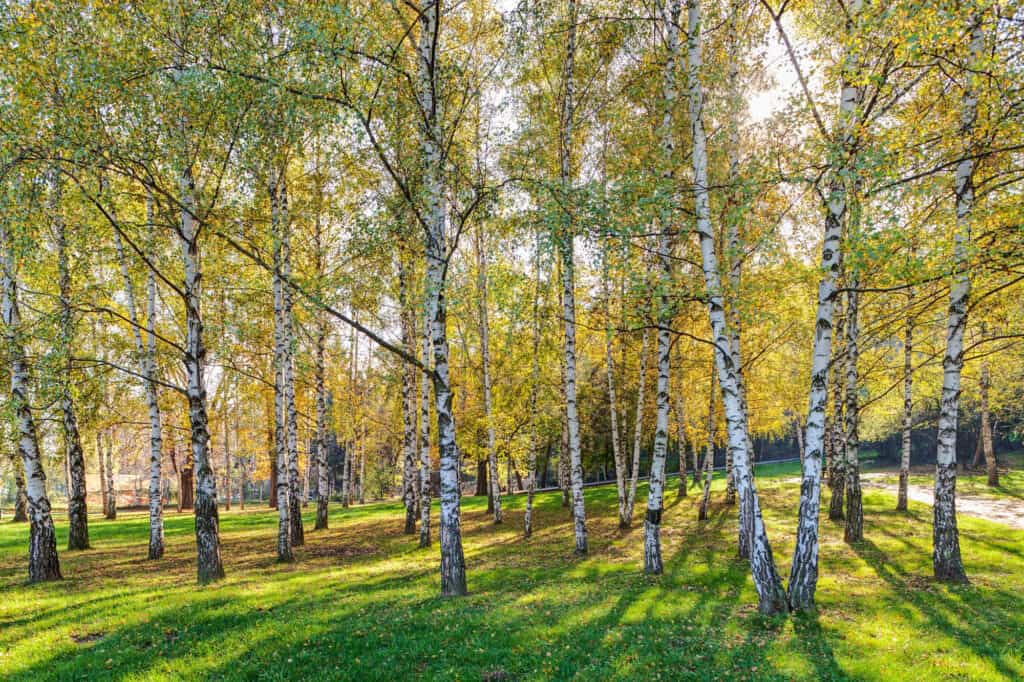
©Vladimir Nenezic/Shutterstock.com
One of the main disadvantages of birch trees is that they’re weak growers; the effort is rarely worth the reward.
These trees tend to have a short lifespan, especially when conditions aren’t ideal. According to the USDA, most birch trees survive no longer than 20 years.
These issues are exacerbated by larger trees shading their area, poor soil conditions, and temperature fluctuations. When it comes to care, birch trees are pretty high-maintenance.
2. Birch Trees Are Prone to Disease and Pests
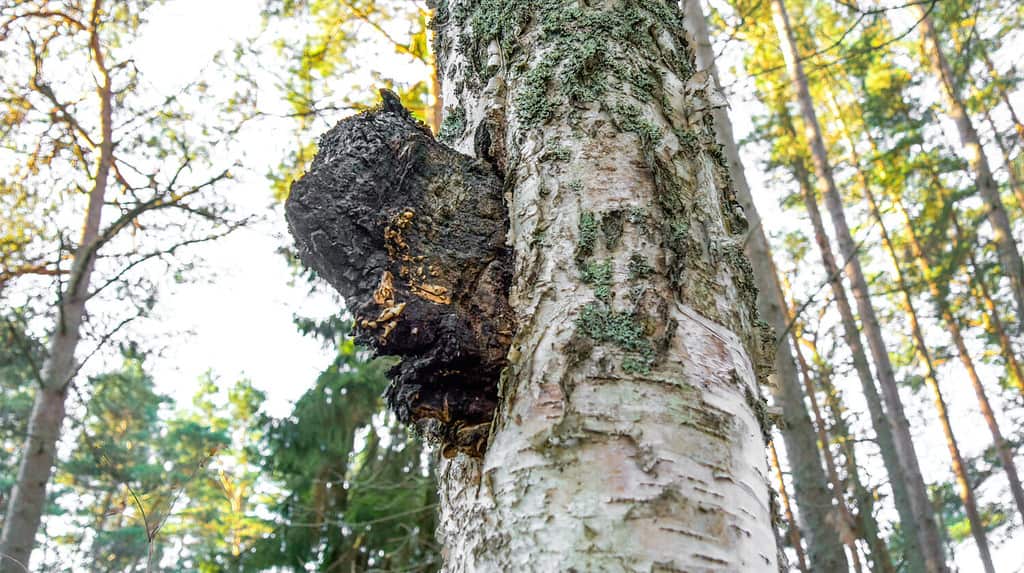
©Nordic Moonlight/Shutterstock.com
Birch trees are prone to attracting diseases and pests, the most prevalent of which is the bronze birch borer.
The bronze birch borer eats through the tree and interrupts the natural flow of sap. As such, it interrupts nutrient transportation and ultimately kills the tree before its time.
Birch tree sap also attracts invasive species like the dreaded spotted lanternfly and the birch leafminer and common pests like aphids that may spread to other trees in your yard.
Woodpeckers are also attracted to the sap, causing significant damage to an already weak tree species.
3. Birch Trees Trigger Birch Pollen Allergies
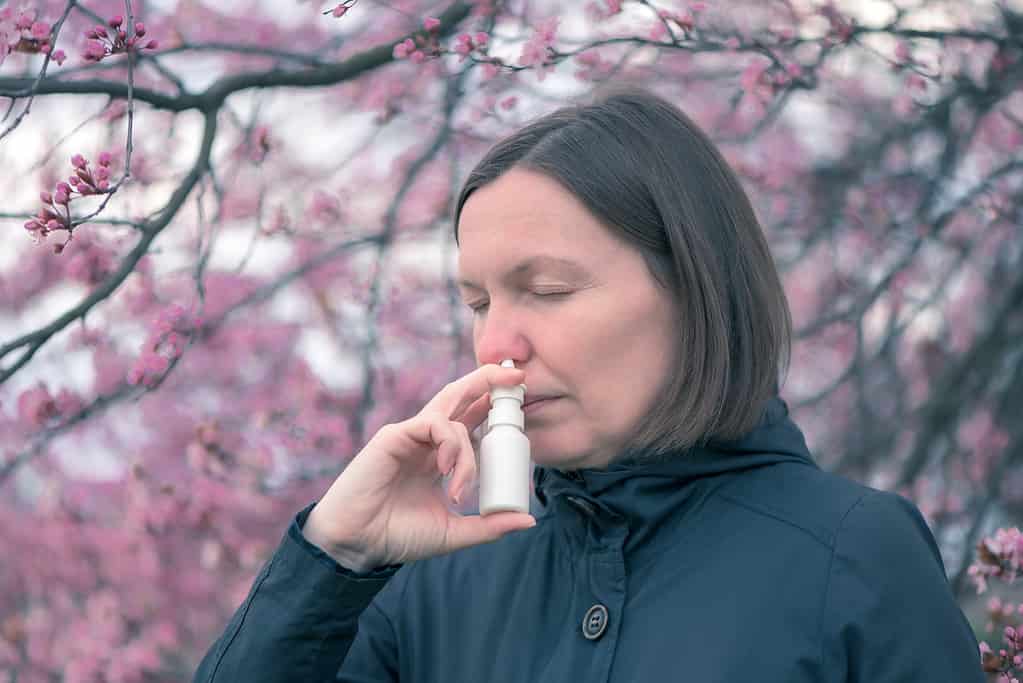
©iStock.com/BitsAndSplits
Birch pollen allergies affect 8-16% of the population. This allergy induces congestion, itching, coughing, and sneezing for those unlucky enough to be affected.
Unless you grew up surrounded by birch trees, you may not be aware of this allergy. You could also be negatively impacting the lives of your neighbors. Think again before planting your birch trees.
4. Birch Tree Sap Is Toxic to Pets

©Catherine Avilez/Shutterstock.com
One of the main concerns for pet parents is the birch sap’s toxicity. Birch sap contains a compound called xylitol, which is considered toxic to pets in any quantity.
If you have a curious critter in your home, avoid planting birch trees. You should also take a look at product labels to check for birch sugar and ensure it’s out of reach.
5. Birch Trees Have Shallow Root Systems
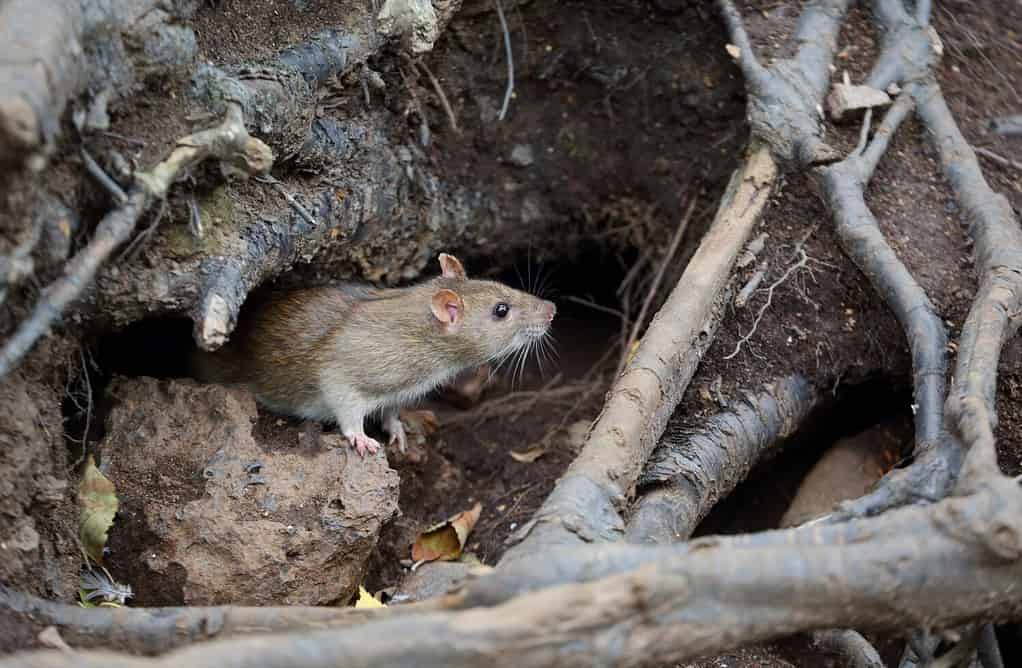
©Stanick/Shutterstock.com
Another disadvantage of birch trees is that they have shallow root systems to collect the significant water they need to thrive. However, these shallow roots make it easier for the trees to rip out of the ground in heavy rains and high winds.
You can help support the shallow root system by mounding soil and mulching to trap moisture. However, if you have a stormy area, reconsider this option.
6. Birch Trees Are Drought Sensitive
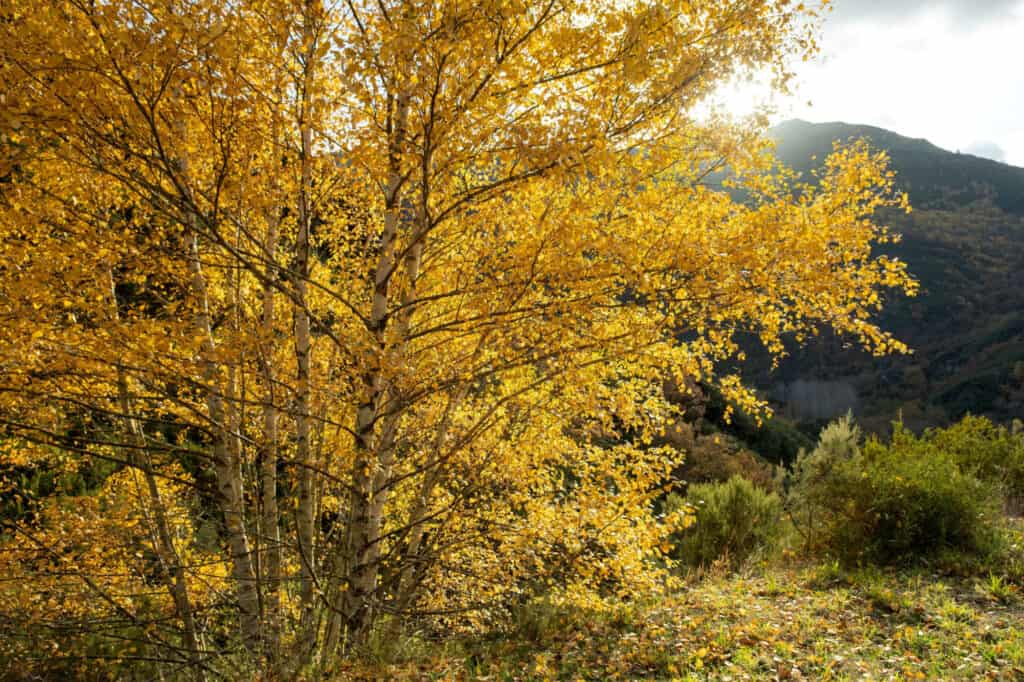
©jessicahyde/Shutterstock.com
As birch trees have shallow root systems, they are susceptible to stress during warm temperatures and drought periods. These high-maintenance trees need regular watering if you want them to survive.
If you live in a cool climate with high humidity levels, you’re in luck; birch trees love this environment!
7. Birch Trees Can Be Water-Seeking
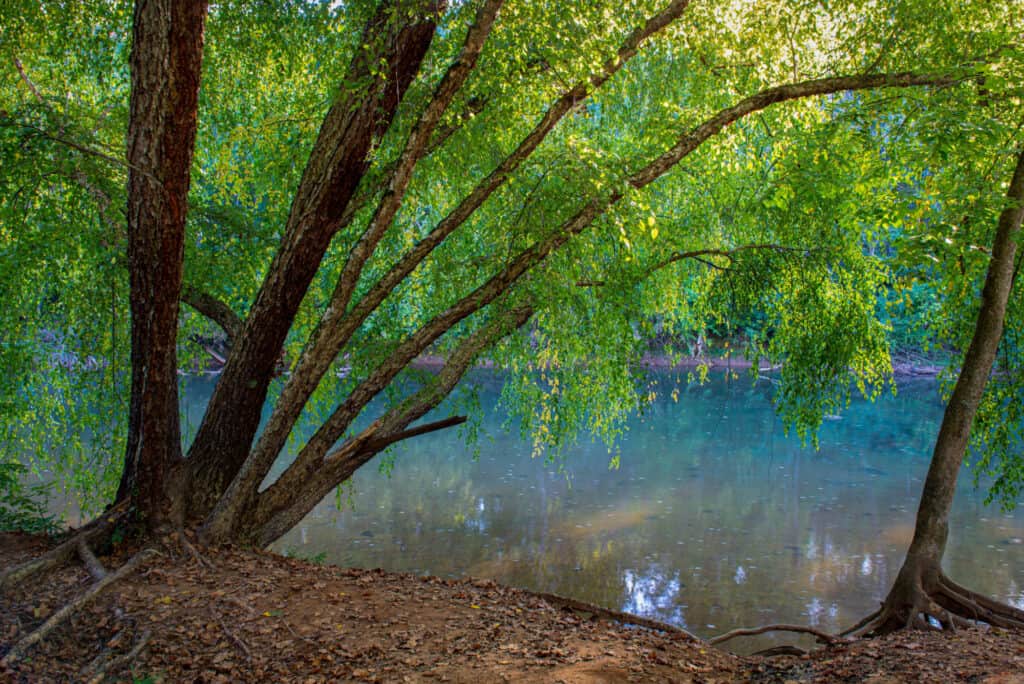
©Gerry Bishop/Shutterstock.com
Most birch trees are not considered a risk to foundations or septic systems as long as they have plenty of water. River Birch trees are the exception.
This water-loving birch will dig through the ground and seek any vulnerable water sources, whether that’s your well, foundation, or pipes. They’ll also starve nearby plants of their water supply. Keep this in mind if you decide to plant a birch; the species matters.
8. Birch Trees Can Be Messy
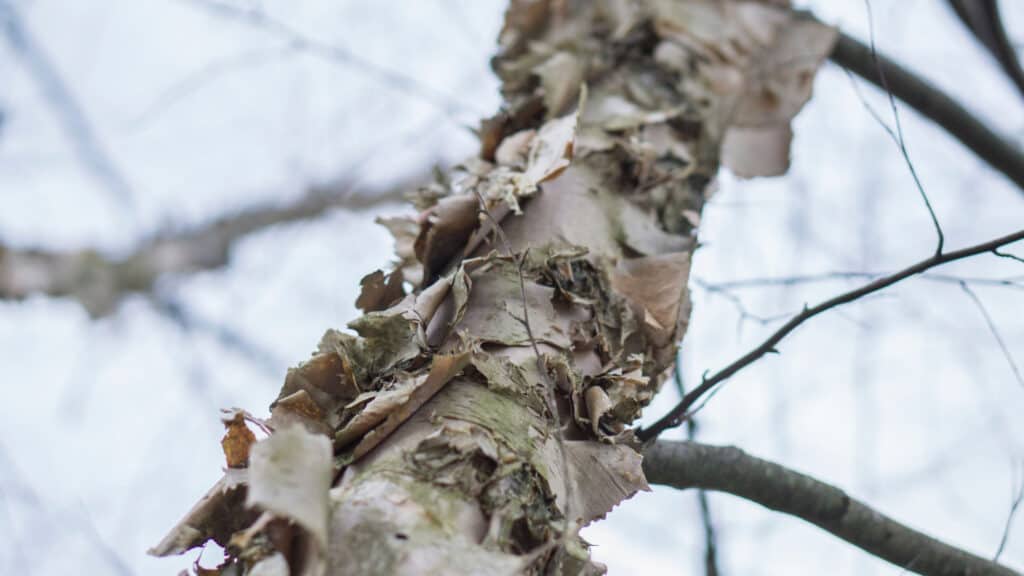
©thematthewhyatt/Shutterstock.com
Some birch tree varieties are incredibly messy, like the aforementioned River Birch. They shed bark, twigs, and leaves. Their sensitivity to high winds breaks a lot of twigs and branches, and birch trees shed when they’re stressed (which is often).
If you opt for a birch tree, prepare to do lots of extra lawn maintenance and upkeep.
9. Birch Trees Are Difficult to Site
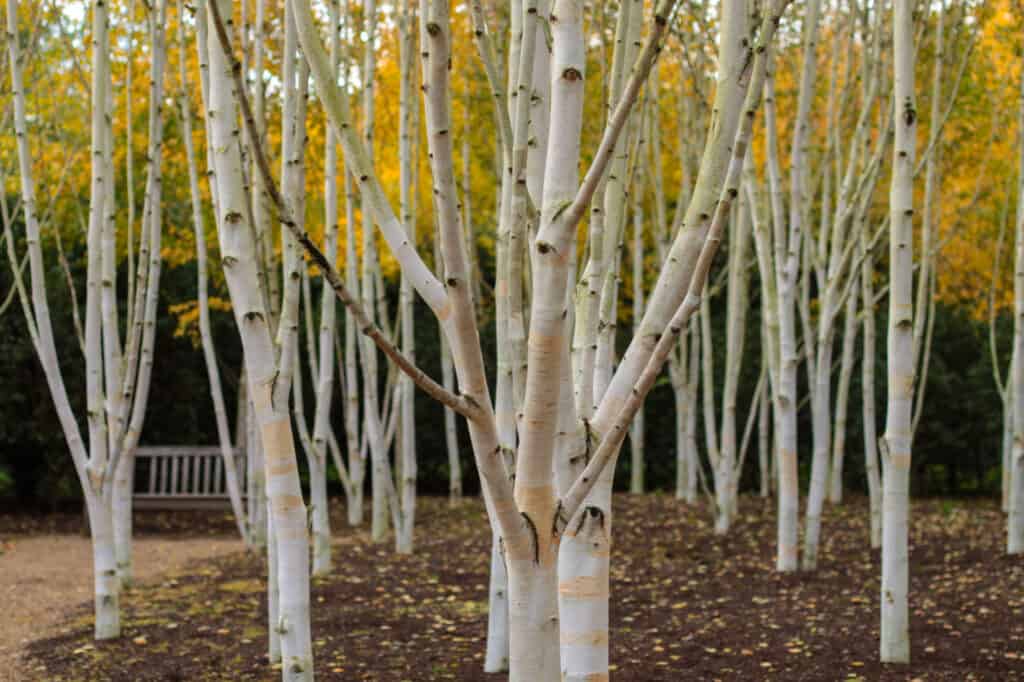
©Lian Na Rose/Shutterstock.com
When a tree is called “difficult to site,” it means it’s hard to find a place to put it that will support its growth and longevity.
Birch trees have:
- Specific soil requirements, preferring slightly acidic, loose soil.
- Nuanced lighting requirements, as they’ll whither if overshadowed by other trees.
- High water requirements requiring access to rainfall or wet ground that still has sufficient drainage.
Birch trees are the Goldilocks of the tree world. They need a spot that’s moist but not too wet, sunny but not too hot—a spot that’s just right.
Summary of Birch Tree Disadvantages
| Ranking | Disadvantages of Birch Trees |
|---|---|
| 1 | Birch Trees Are Weak Growers |
| 2 | Birch Trees Are Prone to Disease and Pests |
| 3 | Birch Trees Trigger Birch Pollen Allergies |
| 4 | Birch Tree Sap is Toxic to Pets |
| 5 | Birch Trees Have Shallow Root Systems |
| 6 | Birch Trees Are Drought Sensitive |
| 7 | Birch Trees Can Be Water-Seeking |
| 8 | Birch Trees Can Be Messy |
| 9 | Birch Trees Are Difficult to Site |





